Why I Love Dynasty Warriors, and Why That's Not Weird
By Hailinel 125 Comments
Dynasty Warriors. Any time a new game in this series is released, you can count on a few things:
- A staff member making a Yellow Turban Rebellion or "Cow Cow" quip.
- Bafflement on the part of the staff as to how and why anyone could possibly enjoy these games.
- People doing a poor job at explaining how and why they enjoy Dynasty Warriors.
- Me shaking my head at it all before diving into the latest release head-first.
With this in mind, and with Dynasty Warriors 8 fresh on my brain, I thought I'd take the time to outline why it is that I enjoy the series in what I hope is the clearest manner possible. I can't speak for all fans of the series, but this is why I enjoy returning to ancient China again and again for the mass slaughtering of lots and lots of dudes. So please, @jeff, if you take the time to read this, I hope this will increase your understanding at least somewhat.
Reason #1: The Gameplay
Dynasty Warriors is not a complex game. It never has been. But it doesn't really need to be, either. People make fun of the basic move lists and combos, typically a string of normal attacks followed by one or two strong strikes, but that simplicity also makes it easily accessible, and it's no more simple than constantly pressing Left Trigger/Right Trigger in Call of Duty every year. But that simplicity is also key for another reason; the large casts of characters that make up the roster of each installment.
The Dynasty Warriors combo system, or charge system, is easy to adapt across a roster of seventy-odd characters. And rather than craft massive, independent move lists akin to Ninja Gaiden or Devil May Cry for each character, the variety comes in how each character plays against the standardized controls. There are slow characters, fast characters, characters that excel with short range or long range weapons. Some characters have musou attacks (essentially, supers) that deal greater damage to a small group of enemies while others are geared more toward a wider, less centralized area.

Despite common beliefs about the series in that every game is the same, the combat system has undergone a variety of changes over the years. In the PS2 era, particularly in the earlier entries, enemy soldiers were harder to take down, even on the normal difficulty setting. The act of wracking up a thousand kills in a stage was a greater challenge, but that was in part due to the limitations of the hardware the games ran on. Dozens of enemies couldn't appear on the screen of a PS2 game without the framerate slowing to a crawl. This changed with the PS3 and 360, and as the hardware has become more capable, the gameplay has adjusted as a result. Mook soldiers are much easier at the default, and it's far easier to wrack of in excess of a thousand kills in a given stage. But when a stage becomes too easy, there's always the option to crank up the difficulty and return to a stage with enemies that can give and take a much greater amount of damage.
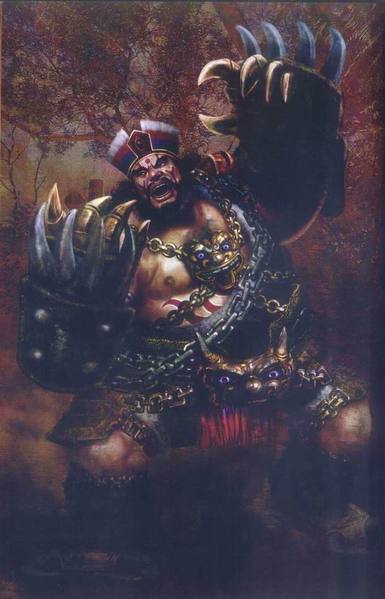
So where does the satisfaction come in, when it's so easy to mow enemies down? Dynasty Warriors is a very cathartic game, and it's satisfying to clear out swarms of enemies, seeing that K.O. count roll to over a thousand, or two thousand, or more. And it definitely has its share of tense moments. A miscalculation can suddenly leave you with a sliver of health, running for your life as three officers are all giving chase among a crowd of enemy mooks. One wrong move and suddenly it's game over. One of my favorite memories of Dynasty Warriors, or really any game in general, was in Dynasty Warriors 4. The way that the Nanman Campaign stage was set up in that game, it was very easy to be put at a disadvantage very quickly, as allied morale would drop like a rock. Enemies swarmed the stage to the point that the minimap was completely red, and it was a tense battle just trying to get myself to the enemy leader Meng Huo, much less beat him. It's rare that the time limit in a normal Dynasty Warriors stage will come into actual play, but there I was, with only a few minute left on the clock and constantly in need of health and musou energy, until I finally managed to best Meng Huo and clear the stage. It was exhilarating.
The latter games, with their easier mooks, are not lacking for tense moments of their own. Just a few days ago in Dynasty Warriors 8 came a crazy moment where, mere seconds into the start of battle, I found myself surrounded by roughly five officers and countless mooks. Before I knew it, I had only a sliver of health left and I was left running for my life, hoping and praying that I could get enough musou energy to stage a comeback. Complicating matters, Dynasty Warriors 8 introduced a rock-paper-scissors element system in its weapons, and so all the while, I was swapping back and forth, trying to maintain the advantage over the officers right there in front of me while avoiding those that had the advantage over me. And this was on the normal difficulty setting.
Reason #2: The Source Material
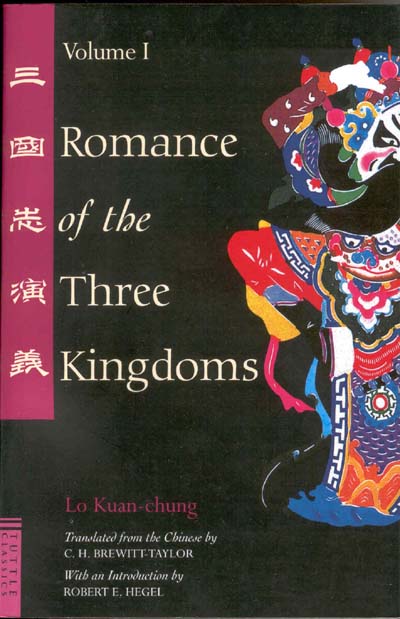
When I first started playing Dynasty Warriors, beginning with Dynasty Warriors 3, I was not familiar with Romance of the Three Kingdoms. I hadn't read it, and I wasn't a student of Chinese history or literature. But one of the common elements included in the series is an encyclopedia of characters and a high-level synopsis of the era's events as chronicled in the novel. Rather than brush it aside, I ate it up. Over time, I read through every single character bio, from the major playable characters to the myriad "generic" officers, each with their own history, however brief they were summarized. That in turn spawned an interest in the period and its figures to the point that I began to do my own external reading on the figures and events that I found most interesting. And then, a few years ago, I finally sat down and read the novel.
Romance of the Three Kingdoms is a truly fascinating read. The numerous figures that come and go, the fighting and scheming, the mysticism, and just the sheer volume of it all is amazing. In finally reading the novel, I was able to gain an appreciation and understanding of the characters and events as they're portrayed in Dynasty Warriors for which I hadn't previously had the background. Even more so when Dynasty Warriors 7 was released with a revised story structure that, in its own arcade-like way, held truer to the narrative of the novel than the games that came before it.
Reason #3: The Characters
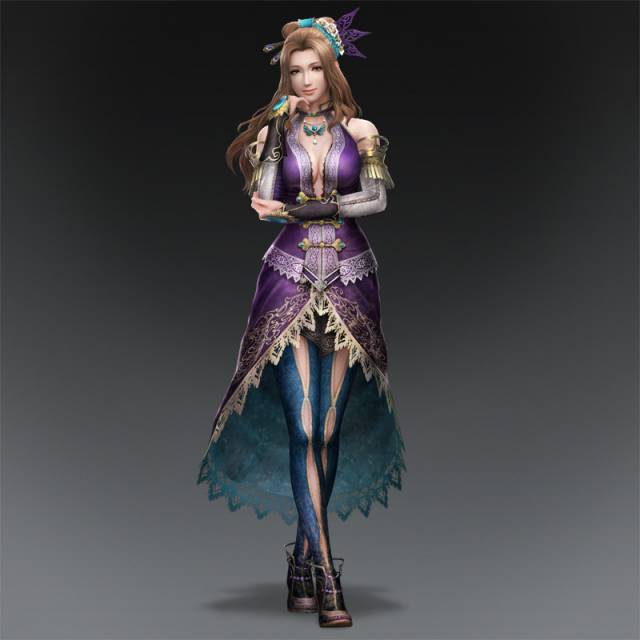
The cast of Dynasty Warriors has grown larger and larger with nearly every installment, and each time it's grown, the developer has, at least in my opinion, made the roster only better. Romance of the Three Kingdoms is rife with characters, both figures from history and those that are purely fictional. Beyond the most famous figures of the age like Cao Cao, Liu Bei, and Guan Yu, it has to be a difficult task in not only choosing who to include, but how to portray them. Dynasty Warriors takes some pretty hefty liberties with the cast, and with the narrative as a result. Particularly in cases like Zhang He (depicted as a less a far less sociopathic and far more fabulous Vega from Street Fighter), or most of the female characters (the vast majority of whom were not actually all that warrior-like). Yet it's in this large, crazy mix that there are characters that could appeal to most anyone. Manly men, pretty boys, feminine ladies, and amazons, there's a full spectrum of character types on display. And though many of them fall into archetypes or stereotypes in their flanderized personalities, these simple traits make them stand out more, creating an entertaining mix of actors on display.
Reason #4: Understanding of What's Been Done Right and Wrong
It should be noted that as fans of Dynasty Warriors, we don't just lap up anything thrown to us. Case in point: Dynasty Warriors 6. The first entry in the franchise of the current console generation, it tried to reinvent Dynasty Warriors from the ground up. Some of what it brought to the table was OK, such as the greater options in maneuvering around maps (swimming, climbing ladders and such were finally implemented for the first time in this game). But the roster was dramatically cut back, ditching a large number of figures that had built up fanbases over the course of the PS2 era. I was particularly disappointed in the loss of Daqiao, one of my go-tos. They also completely changed the nature of how some characters played, with cloned combat styles and the loss of various signature weapons. Zhenji unable to fight with a flute, no matter how ridiculous as that may sound, was another major disappointment for me.
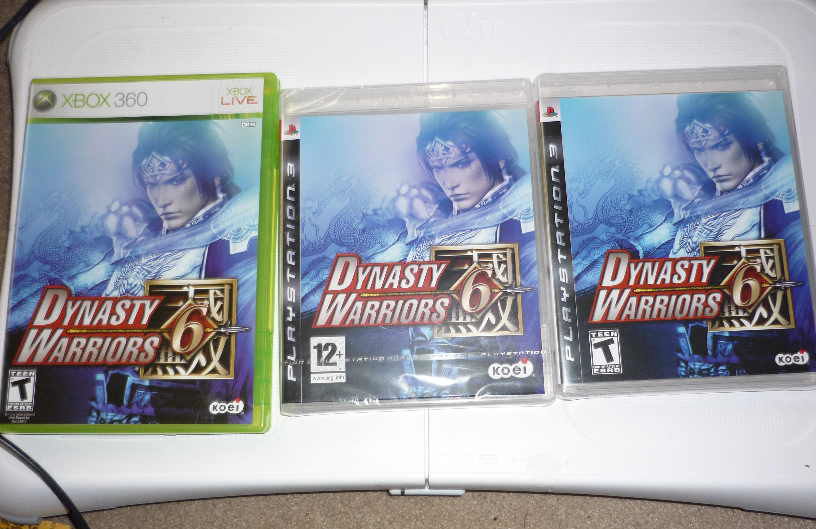
But the biggest strike against the game was the core of the combat system, which had been completely torn out and replaced with something called the Renbu system. A system that made it far, far too easy to launch into infinite combos, basically allowing the player to slash across the stage with ease and removing the strategies (yes, there are strategies) present in the charge system. It was so reviled that Omega Force ditched Renbu and returned to the previous combat system, finding new ways to build upon it in DW7 and 8. The full roster and many of the signature weapons also made their returns, and the end result is two entries that I feel rank among the very best that the franchise has to offer.
Are You Not Entertained?
Well, you don't have to be. Like any game, Dynasty Warriors is bound to have its fans and its detractors. But it's at least been my experience that the detractors don't bother making the effort to understand why the fans enjoy these games so much. Even in the comments section of the Dynasty Warriors 8 quick look, people made the same old, thoughtless quips that it looked and played like an Xbox or PS2 game, or that it hadn't changed and was just pressing X or square over and over. I'm not asking you to like Dynasty Warriors, but I am hopeful that, if you've taken the time to read this, that you have a better understanding of why at least I enjoy the games as I do.
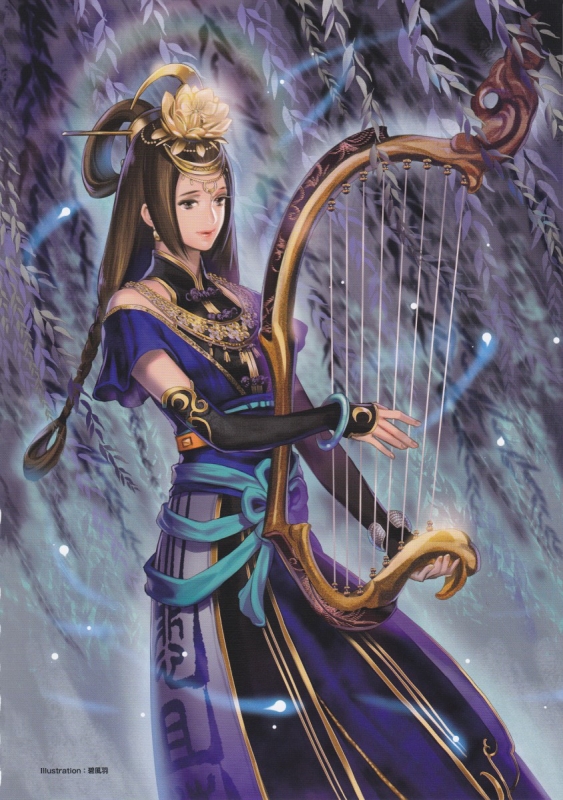
And I'm totally up for answering any questions you might have.